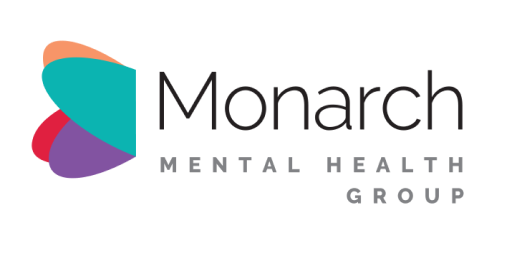When people hear about post-traumatic stress disorder (PTSD), they often think of it as a response to a single traumatic event, such as a car accident or military combat. However, there is another form known as Complex Post-Traumatic Stress Disorder (C-PTSD), which develops due to prolonged, repeated trauma - known as chronic trauma. This condition can deeply impact emotions, relationships, and self-identity. Understanding C-PTSD, its symptoms, and treatment options from mental health professionals is essential for those affected and their loved ones.
What is Complex PTSD?
C-PTSD is a mental health condition caused by long-term exposure to trauma, known as complex trauma, particularly in situations where escape is not possible. Common sources include childhood abuse, emotional abuse, physical abuse, childhood trauma, lengthy early trauma, domestic violence, human trafficking, and captivity, as well as trauma related to war conditions. Unlike PTSD, which usually stems from a single distressing event, C-PTSD develops over time and affects multiple areas of life.

Signs and Symptoms of C-PTSD
C-PTSD shares some symptoms with PTSD, such as flashbacks, nightmares, and heightened anxiety due to traumatic memories. However, due to the nature of complex trauma, it also comes with additional challenges that can make daily life difficult.
- Emotional Regulation Issues: People with C-PTSD often struggle to control their emotions, leading to intense mood swings, ongoing sadness, or sudden anger.
- Negative Self-Perception: A deep sense of guilt, shame, or worthlessness can develop as a result of chronic traumatic stress or childhood trauma, making it hard to feel confident or deserving of happiness.
- Relationship Difficulties: Trust issues and emotional detachment can make it challenging to build or maintain close relationships.
- Dissociation: A feeling of being disconnected from oneself or surroundings is common in people suffering from long-term traumatic stress, sometimes leading to memory gaps.
- Preoccupation with the Perpetrator: Some individuals suffering from chronic trauma develop an unhealthy focus on their abuser, whether through fixation, idealisation, or thoughts of revenge.
How Common is Complex PTSD?
The exact number of people living with C-PTSD is hard to determine, as it has only recently been recognised as a distinct condition. While Australian statistics on C-PTSD are limited, studies from international sources suggest that between 0.6% and 4% of adults in the general population experience it compared to 11% of Australians suffering from PTSD. In groups exposed to chronic trauma, such as survivors of childhood abuse or domestic violence, the numbers are likely much higher.
Effective Treatments for Complex PTSD
Recovering from Complex PTSD requires a personalised approach, as each person’s experience and response to trauma are different. A combination of therapy, psychiatry, and innovative treatments can provide relief.
1. Psychological Therapy
- Cognitive Behavioural Therapy (CBT): Helps individuals recognise and challenge harmful thought patterns while developing healthier coping strategies.
- Eye Movement Desensitisation and Reprocessing (EMDR): A technique that assists in processing traumatic memories, reducing their emotional impact.
2. Psychiatric Support and Medication
- Antidepressants and Anxiety Medications: Some people benefit from medications like selective serotonin reuptake inhibitors (SSRIs) to manage symptoms of depression and anxiety.
- Medication-Assisted Psychotherapy: Using medication alongside therapy can improve treatment outcomes.
3. Neuromodulation Techniques
- Transcranial Magnetic Stimulation (TMS): A non-invasive, safe therapy that uses magnetic fields to stimulate brain regions involved in mood regulation. Studies have shown it can help reduce PTSD symptoms, including anxiety and flashbacks.
- Repetitive Transcranial Magnetic Stimulation (rTMS): This method for treating this mental health condition involves repeated magnetic pulses and has been effective in treating PTSD by improving brain function in areas affected by trauma.
4. Supportive and Holistic Approaches
- Group Therapy: Connecting with others who have similar experiences can reduce isolation and provide a sense of understanding around complex trauma.
- Mindfulness and Relaxation Practices: Meditation, yoga, and breathing exercises can help with emotional regulation and stress management.
Taking the First Step Towards Healing
If you or someone you care about is struggling with complex trauma and C-PTSD, seeking professional support is crucial. The sooner treatment for this mental health condition begins, the better the chances of reducing symptoms and improving overall well-being. Mental health professionals can assess individual needs and create a tailored plan that combines therapy, psychiatry, and innovative treatments like TMS.

Hope and Recovery Are Possible
Living with C-PTSD can be overwhelming, but recovery is within reach. With the right support, it is possible to regain stability, rebuild relationships, and find relief from the distressing effects of trauma. Whether through therapy, medical treatment, or holistic approaches, there are many paths to healing. No one has to go through this journey alone—help is available from our clinics across Australia, and a healthier, more peaceful future is possible. Chat to our mental health professionals today.
FAQs
How is Complex PTSD different from regular PTSD?
Complex PTSD (C-PTSD) is caused by long-term, repeated trauma, whereas PTSD typically stems from a single traumatic event. C-PTSD often includes difficulties with emotional regulation, self-perception, and relationships. The experienced team at Monarch Mental Health Group offers specialised treatments for this mental health condition, including Transcranial Magnetic Stimulation (TMS), psychological therapy, and psychiatric care, to support individuals with C-PTSD. Contact our mental health clinic to discuss treatment options.
What are the most effective treatments for C-PTSD?
C-PTSD treatment often involves a combination of psychological therapy, psychiatry, and neuromodulation techniques. At Monarch Mental Health Group, we provide Cognitive Behavioural Therapy (CBT), Medication-Assisted Psychotherapy, and advanced treatments like Repetitive Transcranial Magnetic Stimulation (rTMS) at clinic locations across Australia to help manage symptoms. Our experienced team of mental health professionals tailors treatment to each individual. Contact us to find the right approach for you.
Can Transcranial Magnetic Stimulation (TMS) help with C-PTSD?
Yes, TMS is an innovative, safe, and non-invasive treatment that stimulates specific brain areas involved in emotional regulation. Research shows that TMS and rTMS can significantly reduce PTSD symptoms like anxiety, hypervigilance, and mood disturbances. Monarch Mental Health Group provides expertise-led TMS therapy as part of our Complex PTSD treatment options. Contact us to learn more about this cutting-edge approach.
How do I know if I have Complex PTSD?
If you experience symptoms like flashbacks, emotional numbness, self-doubt, relationship struggles, or chronic anxiety after long-term trauma, you may have Complex PTSD. A professional diagnosis of this mental health condition is essential for effective treatment. Monarch Mental Health Group offers comprehensive assessments to determine the best course of action for your mental health. Contact us to book an appointment with our mental health team.
How can I get help for C-PTSD at Monarch Mental Health Group?
Seeking help is the first step toward healing. Monarch Mental Health Group provides a range of evidence-based treatments, including psychological therapy, psychiatry, medication, and TMS. We create personalised treatment plans to support your recovery. If you're struggling with C-PTSD, contact a clinic near you to schedule a consultation and start your journey toward better mental health.
.png)
About The Author
Dr Ted Cassidy
Dr. Ted Cassidy is a psychiatrist and co-founder of Monarch Mental Health Group in Australia, which provides innovative treatments for depression, PTSD, and anxiety. Monarch Mental Health is recognized as Australia's first outpatient clinic offering assisted therapy and is the largest provider of outpatient magnetic stimulation therapy.

